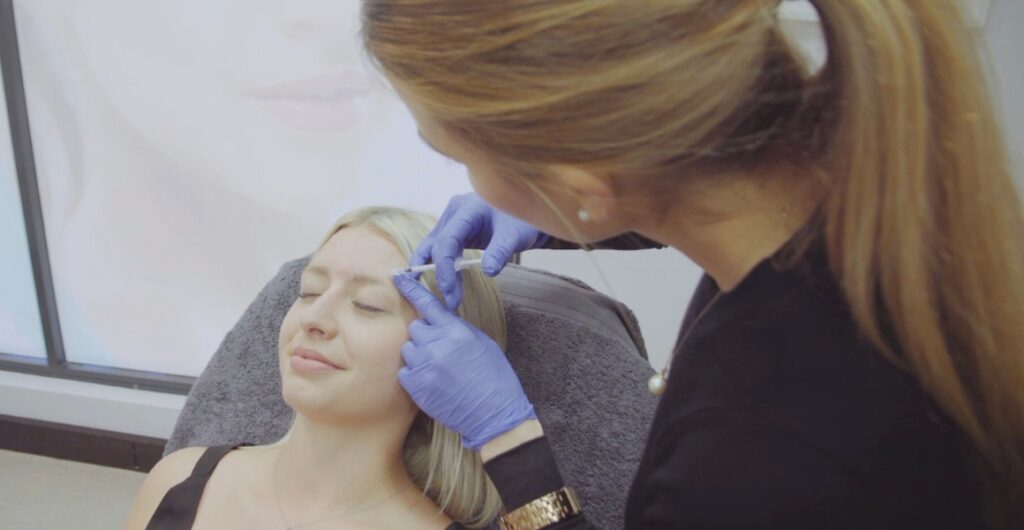Where a cosmetic nursing course can lead you

Where a Cosmetic Nursing Course Can Lead You
Cosmetic Nursing is a growing field in the nursing profession. The aim of this article is to inform you where a cosmetic nursing course can take your career and provide detailed information about the typical day in the life of a Cosmetic Nurse…
Skin Assessment / Analysis
Cosmetic Nurses conduct effective skin assessment as it forms the foundation to most cosmetic injectables and dermal procedures. Skin assessment refers to a visual and tactile analysis of the skin and its underlying structures, ie. epidermis, dermis, subcutaneous and even bony structures. Assessment techniques may involve the use of skin analysis tools such as a dermatoscope for assessing pigmented and vascular lesions, a woods lamp for assessing depth of pigment and specialised cameras to assess surface textural irregularities and contours.
Detailed skin assessment allows the Cosmetic Nurse to develop a holistic treatment plan, refer the patient to other health care providers when required and work effectively within their scope of practice.

Cosmetic Injectables
Cosmetic Nurses perform a range of cosmetic injectable procedures such as botulinum toxin, hyaluronic acid dermal fillers, platelet rich plasma and bio-stimulatory dermal fillers. The products used for these procedures are scheduled medications and must be prescribed by a Medical Doctor. The RN (or EN) Cosmetic Nurse cannot purchase these scheduled medications or work independent of the prescribing doctor.

Dermal Therapies
Dermal therapy procedures are highly complementary to cosmetic injectables and are essential to providing a holistic cosmetic service. Cosmetic Nurses perform a range of dermal therapies including microdermabrasion, laser and IPL (vascular and pigment), laser tattoo removal, laser hair reduction, fractionated laser, chemical peels, LED therapy, cryolipolysis, radiofrequency and skin/micro-needling. In some states of Australia, laser licensing is required for Cosmetic Nurses.

Assisting the Cosmetic Physician / Surgeon / Dermatologist
Cosmetic Nursing also involves assisting the Doctor in aspects of patient care. Depending on the cosmetic clinic, this may involve theatre assisting, pre/post-operative care, patient consultation, advice and other clinical duties. A Cosmetic Nurse working with a Cosmetic or Plastic Surgeon is expected to have a sound understanding of the surgical procedures offered within the clinic. Having a broad knowledge of all cosmetic procedures ensures patients are provided with a wide range of treatment options, treated holistically and referred to the appropriate Doctor when necessary.

Administration
Patient documentation, organising pre/post photographs, ordering consumables and products, developing policies and procedures, marketing and social media are some examples of the day-to-day tasks of a Cosmetic Nurse in a cosmetic clinic.

How to Become a Cosmetic Nurse in Australia
To launch your career in Cosmetic Nursing, you’ll firstly need to be a Registered Nurse to enter a postgraduate qualification such as the 52852WA Graduate Diploma of Cosmetic Nursing and Injectables. Enrolled Nurses can also enter this course, however there are some restrictions on administering cosmetic injectables so Enrolled Nurses tend to take on more of a dermal therapy role.
A Graduate Diploma in Cosmetic Nursing and Injectables will take you approximately one year to complete on a full-time basis and two years on a part-time basis. The theory component of the course is completed in a flexible manner online or on-campus (Perth and Gold Coast only). The hands-on practical competencies are delivered in custom designed training clinics (Aspire Training Clinics) in Melbourne, Perth, Sydney and Gold Coast. Training encompasses the following:
– Neurotoxins (glabellar, forehead and eyes)
– Dermal Fillers (lips, cheeks and oral commissures)
– Dermatoscopy
– Micro/skin-needling for epidermal and dermal remodelling
– Laser and IPL for pigmentation and vascular lesions
– Fractionated laser for epidermal and dermal remodelling
– Laser and IPL for hair reduction
– LEDs for wound healing, skin rejuvenation and acne
– Chemical peels for epidermal resurfacing and pigment correction
– Microdermabrasion for epidermal resurfacing
To get started, please click here to arrange a time to talk with the Course Coordinator or to apply for the 52502WA Graduate Diploma of Cosmetic Nursing and Injectables, please click here.

